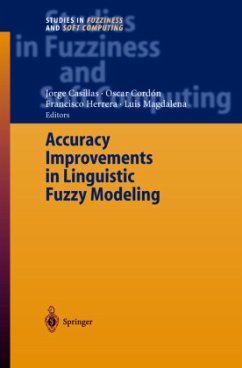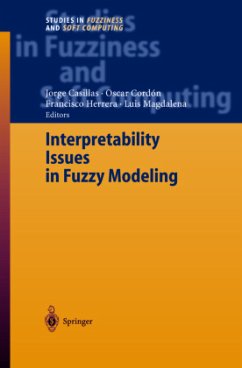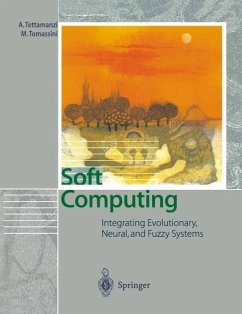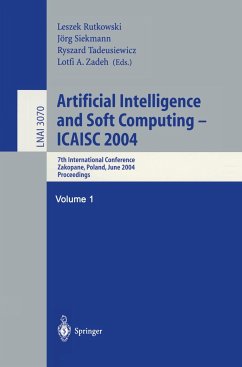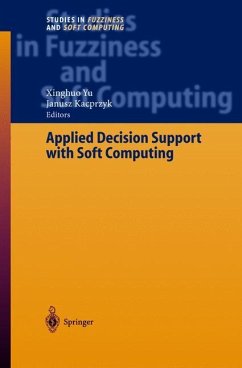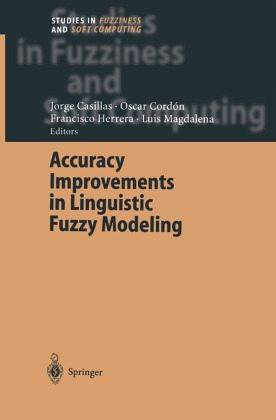
Accuracy Improvements in Linguistic Fuzzy Modeling
Versandkostenfrei!
Versandfertig in 6-10 Tagen
115,99 €
inkl. MwSt.

PAYBACK Punkte
58 °P sammeln!
Fuzzy modeling usually comes with two contradictory requirements: interpretability, which is the capability to express the real system behavior in a comprehensible way, and accuracy, which is the capability to faithfully represent the real system. In this framework, one of the most important areas is linguistic fuzzy modeling, where the legibility of the obtained model is the main objective. This task is usually developed by means of linguistic (Mamdani) fuzzy rule-based systems. An active research area is oriented towards the use of new techniques and structures to extend the classical, rigid...
Fuzzy modeling usually comes with two contradictory requirements: interpretability, which is the capability to express the real system behavior in a comprehensible way, and accuracy, which is the capability to faithfully represent the real system. In this framework, one of the most important areas is linguistic fuzzy modeling, where the legibility of the obtained model is the main objective. This task is usually developed by means of linguistic (Mamdani) fuzzy rule-based systems. An active research area is oriented towards the use of new techniques and structures to extend the classical, rigid linguistic fuzzy modeling with the main aim of increasing its precision degree. Traditionally, this accuracy improvement has been carried out without considering the corresponding interpretability loss. Currently, new trends have been proposed trying to preserve the linguistic fuzzy model description power during the optimization process. Written by leading experts in the field, this volume collects some representative researcher that pursue this approach.





